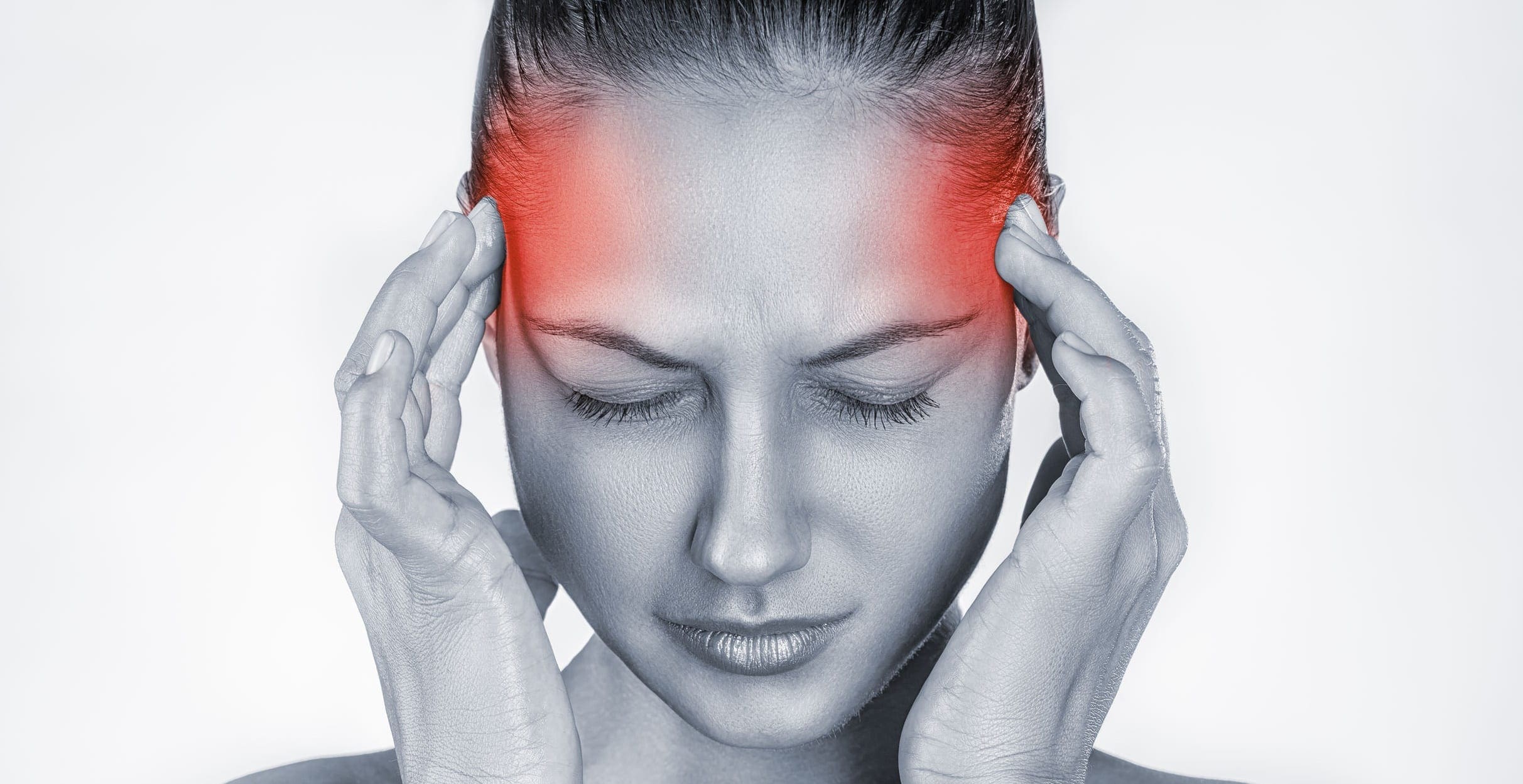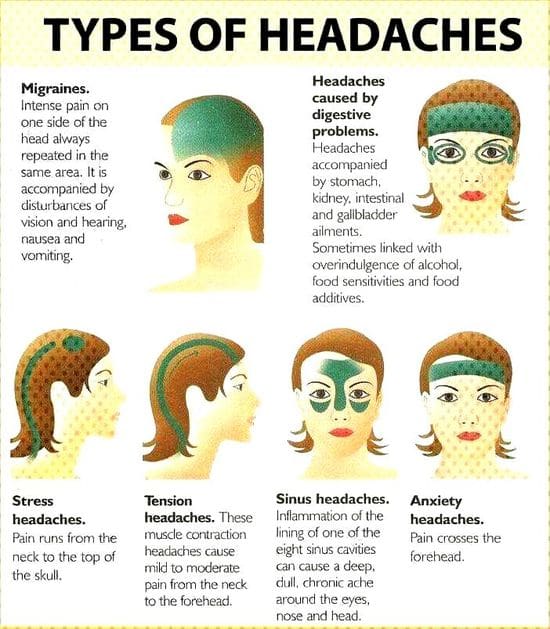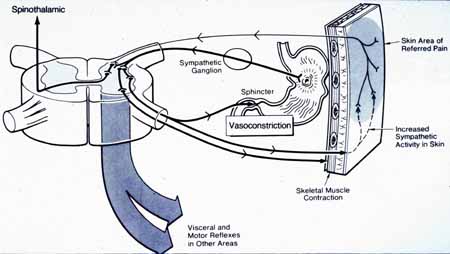
Table of Contents
Introduction
Everyone has headaches at some point throughout their lives, which can be excruciating, depending on the severity. Whether it is a heavy workload that causes a person to have severe tension on their foreheads, allergies that cause immense pressure in between the sinus cavity in the middle of the face, or common factors that seem to cause a pounding sensation in the head, headaches are no joke. Often, headaches seem to go away when it’s in their acute form but can become chronic when the pain doesn’t go away, causing issues to the eyes and muscles. Today’s article looks at how headaches affect the body and how they can become a somatovisceral problem for many individuals. We refer patients to certified, skilled providers specializing in neurological treatments that help those individuals that are suffering from headaches. We also guide our patients by referring to our associated medical providers based on their examination when it’s appropriate. We find that education is critical for asking insightful questions to our providers. Dr. Alex Jimenez DC provides this information as an educational service only. Disclaimer
Can my insurance cover it? Yes, it may. If you are uncertain, here is the link to all the insurance providers we cover. If you have any questions or concerns, please call Dr. Jimenez at 915-850-0900.
How Headaches Affect The Body
Do you feel a pounding sensation in your forehead? Do your eyes seem to become dilated and sensitive to light? Do both arms or hands seem to lock up and have a pins-and-needles sensation that feels uncomfortable? These signs and symptoms are various forms of headaches affecting the head. The head helps protect the brain from damage as the neuron signals from the central nervous system are connected to the cervical regions of the spine. When factors like lifestyle habits, dietary food intake, and stress affect the central nervous system, they begin to co-mingle to form various forms of headaches. Each form of headache continuously shifts in many suffering individuals to never sit still for their clinicians to capture their specific profile. Some of the multiple headaches include:
- Tension headaches
- Migraines
- Stress headaches
- Sinus pressure
- Clustered headaches
When headaches begin to affect the neck and head, research shows that these headaches cause a convergence between the cervical sections of the spine and the skull base. This becomes a mediator for the neck and head to develop referred pain. Referred pain is known as pain that occurs in one section of the body than where it is located. For example, say someone has been through a traumatic injury that causes them to have whiplash in their neck; that pain in their neck muscles can mimic a headache affecting one side of their head. Additional information has mentioned that migraine headaches can cause chronic inflammatory issues in the gut-brain axis, causing dysfunctional autonomic and enteric nervous systems and affecting the body.
How The Body Deals With Migraines-Video
Have you experienced throbbing in various sections of your face? Do you feel your muscles tense up around your neck or shoulders? Or does your body feel exhausted that noise seems to cause immense pain? The various forms of headaches can cause many problems not only in the neck but in the body as well. The video above shows what happens to the body when a person is suffering from a migraine. Research studies have noticed that individuals suffering from migraines will develop associated somatic comorbid symptoms like anxiety and depression, making migraine headaches more frequent. At the same time, being the top three of the most common forms of headaches, migraines may share a common underlying mechanism involving the overlapping profiles of the cerebrovascular system that is equivalent to a repetitive stress disorder affecting the central nervous system.
How Headaches Are A Somatovisceral Problem
Research studies have found that the severity of the headache in a person, especially in women, causes a synergetic relationship that causes somatic symptoms and depression to be so high. This is due to the overlapping risk profiles that affect the mechanisms of the sympathetic nervous system, causing the production of cervicogenic headaches and chronic migraines to form. This is because the junction of the brain stem and the spinal cord is called the trigeminocervical nucleus and overlaps the nociceptive cells. When this happens, The close anatomic pain fibers from the cervical spine and the trigeminal system start to be aggravated; it creates pain impulses from the neck to the head, causing headaches to be interpreted.
Conclusion
Overall, headaches are no joke when they start to affect the body and cause mimic pain in different parts of the body. When various factors begin to cause somatic issues that tense the muscles but also affect the surrounding nerves, it can cause headaches to form and become excruciating. Different forms of headaches can affect other regions of the face and can go away for a short period in their acute form. However, in its chronic condition, it can cause the body to be in so much pain. Finding ways to prevent headaches from progressing further can benefit the individual.
References
Castien, René, and Willem De Hertogh. “A Neuroscience Perspective of Physical Treatment of Headache and Neck Pain.” Frontiers in Neurology, Frontiers Media S.A., 26 Mar. 2019, www.ncbi.nlm.nih.gov/pmc/articles/PMC6443880/.
Cámara-Lemarroy, Carlos R, et al. “Gastrointestinal Disorders Associated with Migraine: A Comprehensive Review.” World Journal of Gastroenterology, Baishideng Publishing Group Inc, 28 Sept. 2016, www.ncbi.nlm.nih.gov/pmc/articles/PMC5037083/.
Maizels, Morris, and Raoul Burchette. “Somatic Symptoms in Headache Patients: The Influence of Headache Diagnosis, Frequency, and Comorbidity.” Headache, U.S. National Library of Medicine, 2004, pubmed.ncbi.nlm.nih.gov/15546261/.
Tietjen;Brandes JL;Digre KB;Baggaley S;Martin V;Recober A;Geweke LO;Hafeez F;Aurora SK;Herial NA;Utley C;Khuder SA;, G E. “High Prevalence of Somatic Symptoms and Depression in Women with Disabling Chronic Headache.” Neurology, U.S. National Library of Medicine, 9 Jan. 2007, pubmed.ncbi.nlm.nih.gov/17210894/.
Disclaimer
Disclaimers
Professional Scope of Practice *
The information herein on "Headaches As A Somatovisceral Problem" is not intended to replace a one-on-one relationship with a qualified health care professional or licensed physician and is not medical advice. We encourage you to make healthcare decisions based on your research and partnership with a qualified healthcare professional.
Blog Information & Scope Discussions
Welcome to El Paso's wellness blog, where Dr. Alex Jimenez, DC, FNP-C, a board-certified Family Practice Nurse Practitioner (FNP-C) and Chiropractor (DC), presents insights on how our team is dedicated to holistic healing and personalized care. Our practice aligns with evidence-based treatment protocols inspired by integrative medicine principles, similar to those found on dralexjimenez.com, focusing on restoring health naturally for patients of all ages.
Our areas of chiropractic practice include Wellness & Nutrition, Chronic Pain, Personal Injury, Auto Accident Care, Work Injuries, Back Injury, Low Back Pain, Neck Pain, Migraine Headaches, Sports Injuries, Severe Sciatica, Scoliosis, Complex Herniated Discs, Fibromyalgia, Chronic Pain, Complex Injuries, Stress Management, Functional Medicine Treatments, and in-scope care protocols.
Our information scope is limited to chiropractic, musculoskeletal, physical medicine, wellness, contributing etiological viscerosomatic disturbances within clinical presentations, associated somato-visceral reflex clinical dynamics, subluxation complexes, sensitive health issues, and functional medicine articles, topics, and discussions.
We provide and present clinical collaboration with specialists from various disciplines. Each specialist is governed by their professional scope of practice and their jurisdiction of licensure. We use functional health & wellness protocols to treat and support care for the injuries or disorders of the musculoskeletal system.
Our videos, posts, topics, subjects, and insights cover clinical matters, issues, and topics that relate to and directly or indirectly support our clinical scope of practice.*
Our office has reasonably attempted to provide supportive citations and has identified the relevant research studies or studies supporting our posts. We provide copies of supporting research studies available to regulatory boards and the public upon request.
We understand that we cover matters that require an additional explanation of how they may assist in a particular care plan or treatment protocol; therefore, to discuss the subject matter above further, please feel free to ask Dr. Alex Jimenez, DC, APRN, FNP-BC, or contact us at 915-850-0900.
We are here to help you and your family.
Blessings
Dr. Alex Jimenez DC, MSACP, APRN, FNP-BC*, CCST, IFMCP, CFMP, ATN
email: coach@elpasofunctionalmedicine.com
Licensed as a Doctor of Chiropractic (DC) in Texas & New Mexico*
Texas DC License # TX5807
New Mexico DC License # NM-DC2182
Licensed as a Registered Nurse (RN*) in Texas & Multistate
Texas RN License # 1191402
ANCC FNP-BC: Board Certified Nurse Practitioner*
Compact Status: Multi-State License: Authorized to Practice in 40 States*
Graduate with Honors: ICHS: MSN-FNP (Family Nurse Practitioner Program)
Degree Granted. Master's in Family Practice MSN Diploma (Cum Laude)
Dr. Alex Jimenez, DC, APRN, FNP-BC*, CFMP, IFMCP, ATN, CCST
My Digital Business Card








